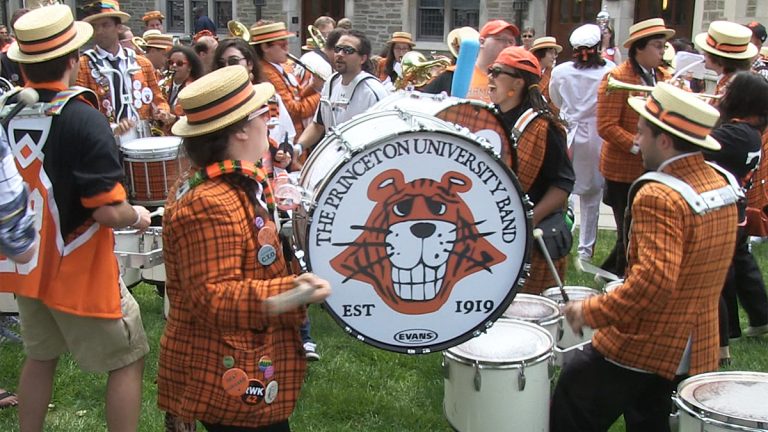My thoughts this week center around belonging – about why and how we create a sense of belonging throughout our organizations and teams. Belonging is one of those touchy-feely words which can often make some nervous (the whole “Real men don’t talk about their feelings” so many of us are spending time trying to unlearn), but it is a critical component of both personal happiness and a high-performing team.
Our leadership team had a good discussion about belonging during long-term planning two weeks ago as part of our exploration of how we truly help our teammates feel like whatever job they have is the best one they’ve ever had. Belonging for me comes down to being able to answer three questions: Do I feel like a valued member of my team? Does my leader have my back? And Do I believe in what we’re trying to accomplish?
Intellectually, it was a good discussion for me. After nearly two years, I feel I belong as a piece of our leadership team and GreenPoint. I realize this might sound funny coming from the CEO, but I joined GreenPoint as an outsider. Emotionally, belonging didn’t hit home for me until I traveled to attend my undergraduate university’s “third” 25th reunion this past weekend. I say “third” because it was our third try as our actual 25th reunion. It was originally scheduled for May 2020, but COVID caused both it and our do-over attempt last spring to fail.
Reunions are a huge deal at Princeton University. With the Ivy League opting out of athletic scholarships a long time ago and people attending from throughout the country and around the world, the concept of returning for illustrious football games was never in the cards. Reunions serve as the substitute – a three-day party once claimed to be Budweiser’s second largest order of the year behind the Indianapolis 500. Considering Indy holds 300,000 and about 25,000 were expected for Princeton’s reunions, you get the [slightly blurry] picture.
I consider myself a confident person but I was nervous about returning. In addition to the standard hang-ups about weight, hairline and status, it was only my second time back on campus and my first reunion since I graduated 27-years ago. I absolutely loved Princeton but for a bunch of excuses that sounded a little lame as I tried to explain to college friends on Friday, I never got in the habit of going back. By the time our third 25th rolled around, I didn’t know if I belonged to the Princeton tribe anymore.
Of course, about five minutes after I linked up with some old friends, the anxiousness disappeared and by the end of the weekend, I felt like I not only had I reconnected with some great people, but I belonged to Princeton again. In light of our team’s recent discussions, I spent my trip home thinking about how hard Princeton worked to create a sense of belonging for everyone.
Why do we care about belonging?
Belonging matters. On a personal level, most of us spend a huge chunk of our lives simply trying to get a sense of belonging somewhere; to our families, to our friend groups through school, to our churches and communities, and to the companies and people we work alongside. Given the huge percentage of our waking time spent working, feeling a sense of belonging at work is a key piece of our individual happiness puzzle.
On a professional level, building a culture of belonging is important for two reasons. First, one of our specific goals at GreenPoint is to become the best place our teammates ever worked. We will only achieve this goal when our entire organization feels a true sense of belonging. As Simon Sinek says, “Working hard for something we don’t care about is called stress. Working hard for something we love is called passion.” It’s hard to be passionate about a place where you don’t feel like you belong.
Second, belonging helps determine how we show up in our performance at work for our customers and teammates, at home with families, and across every facet of our lives. Teams with strong cultures of cohesion and belonging dramatically outperform teams without them across all categories, from sports to the military to nearly any form of business. These teams also have strong “adaptive cultures”, meaning they can adjust to changes in the external circumstances quickly. This is critical in modern agriculture with variable impacts like weather, technology, supply chain disruptions, and crazy events like Russia’s invasion of Ukraine which constantly change our world and the speed in which we respond. A study of 207 US firms between 1976 and 1988 indicated companies with adaptive cultures increased net income by 765% over that time vs 1% for companies without adaptive cultures.

So, what does my reliving my not-so-glory days with old college friends have to do with work and creating a sense of belonging? I think a number.
- Be deliberate. The crazy, amazing weekend didn’t happen spontaneously. A full-time staff and an army of volunteers planned and executed the weekend meticulously. Similarly, while culture or team cohesion can feel like it “just happens,” good teams make it happen. They think, talk, plan and focus on how they form their teams and build the bonds that tie it together. They also understand as Daniel Coyle points out in his book, The Culture Code, “Belonging needs to be continually refreshed and reinforced.”
- It was well organized and safe. You can’t feel like you belong if you don’t feel physically safe. Bringing 25,000 people back to descend on a campus built for 6,000 for three days of alumni events and parties could be a cause for mayhem, but it wasn’t. Princeton prioritized safety including plenty of friendly security, wristbands to control entry, and transportation to and from hotels to get people to a bed safely. When it rained, copious amounts of straw seemed to magically appear to keep the mud down.
- Physical proximity and physical touch matters. Reunions are all about connection. Gathering without masks, reconnecting through smiles, handshakes, fist bumps, and hugs matter. We’ve all struggled with physical connections over the past two years with COVID. In my mind, beyond the incredible death, sickness, and direct toll from the disease, the longer-lasting impact from a lack of physical connection is the loss of a sense of belonging. I can’t help but think about our country’s current divide and wonder how much a role our physical separation has played in exacerbating the issue. Humans are meant to connect emotionally and physically.
- Honor history and tradition. One of the more intimidating things about Princeton for me was its incredible history. Since its charter in 1746, Princeton has been woven into the fabric of our country with Nassau Hall even housing the Continental Congress for a brief period of time. As much as I love change and tend to spend most of my energy thinking about the future, I often struggle with tradition. I grew up on the west coast where everything is shiny and new and we’re more likely to blow up traditions than embrace them. Princeton’s reunions reminded me how history and tradition play important roles in a sense of connection and belonging. Listening to the band play Old Nassau or the bagpipe corps lead in our oldest living graduates in our the “P-rade” brought chills to my spine. I realized then I could do better about celebrating and honoring the great histories of our organization. We also need to focus on starting a few traditions of our own to pass on to the next generation.
- Don’t be afraid of being a little dorky. Princeton’s colors are orange and black, which beyond the book and TV show, Orange is the New Black, have never been known as the most fashionable school colors. Instead of dismissing the contrast, Princeton celebrates its colors and goes over the top. Princeton reunions have become a contest to see who can design the most outrageous combination of orange and black, so much that wearing it becomes a healthy exercise in vulnerability. The only possible way you avoid being laughed at by everyone around you is if everyone around you is also wearing something similar. Go dorky, get vulnerable, and join the tribe.
- It doesn’t have to be every day. It doesn’t take a long time to create or renew a sense of belonging. As my reunion reminded me, with the right planning, carefully chosen crazy outfits, and embracing honored traditions, you can instill or reignite a strong sense of belonging very quickly.
As the summer approaches and your world hopefully starts to slow for a bit, take a deep breath, gather your teams, have some fun, and spend some time focused on helping everyone on your team feel like they belong to your tribe, whatever it is. It may feel dorky at first and may not immediately contribute to the bottom line, but it will make it a better place to work and, ultimately, a more successful team.
Onward!
Jeff





